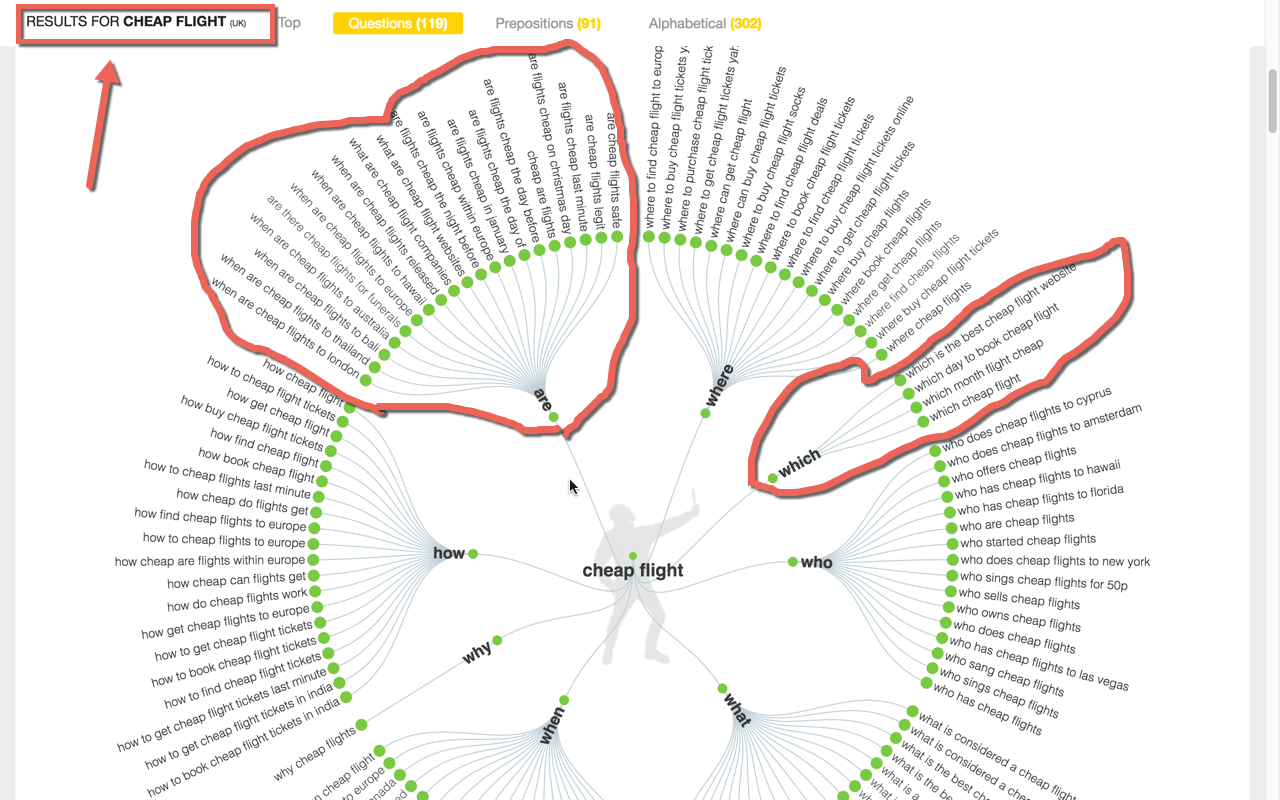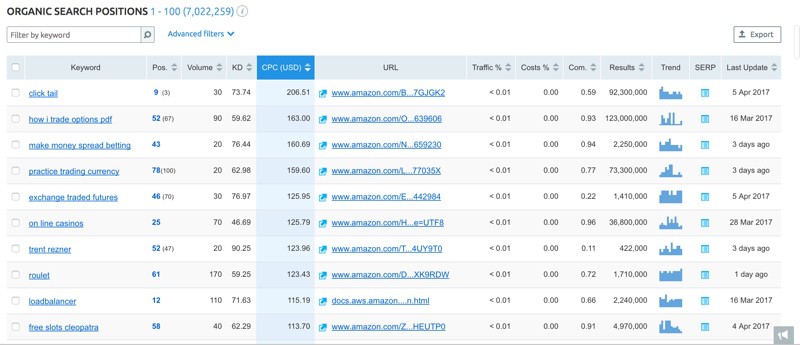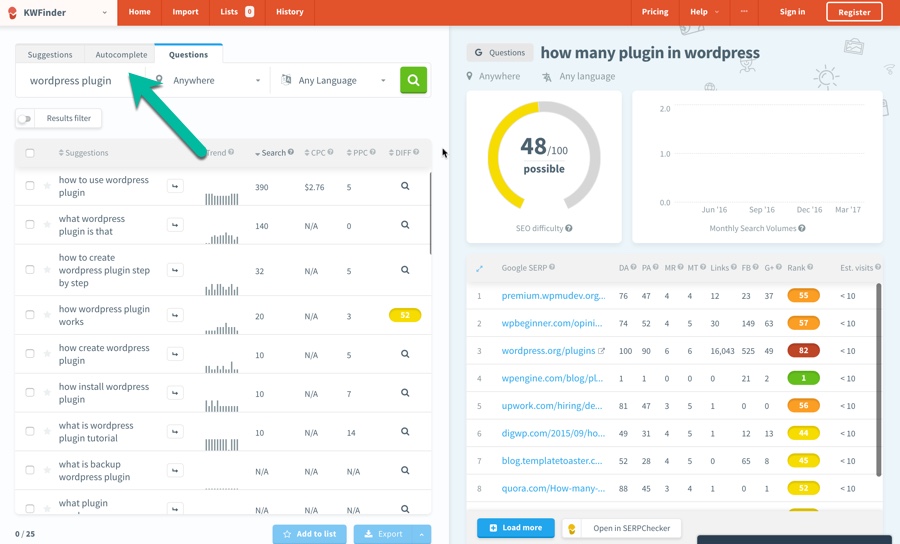
I have written a lot about keyword research and its benefits. One of the major mistakes I have seen many people make is that they will target direct keywords instead of long-tail keywords (LTK) .
If you are not familiar with long-tail keywords, here is a quick example of the difference between short-tail and long-tail:
You may notice that the last two keywords have fewer searches, but the competition for these two keywords is far less than it is for the short-tail keyword. Also, long-tail keywords drive more targeted traffic than short-tail keywords do, so your conversion (sales, email sign-ups) improves a lot. If you want to learn more about this subject, check out How long tail keywords could equal massive success.
In this post I am sharing some of the best tools for finding long-tail keywords in any niche. Note that some of them are free, and a few of them are paid. I will explain the features of each, and you can choose any one that suits your needs.
Best Online tools to find Long-Tail Keywords:
Answer the Public:

This one is one of my favorite free long tail Keyword research tool. This one is in the line of Ubersuggest but offers one unique proposition. Using this tool, you can search for any Keyword & it would show you common questions asked around that “Keyword” “Topic” in search engine.
This is the tool that all the SEO guys use as a complete SEO suite. SEMRUSH is the first finest SEO tool that was ever built to find keywords that your competitors are ranking for.

Unlike traditional keyword research, SEMRUSH takes away the guess work & help you quickly find long tail keyword from any website. If you are looking for one perfect tool for long tail Keyword research, look no further than SEMRUSH.
You don’t have to believe me rather for next 14 days use SEMRUSH for free. 2 weeks are enough to help you decide if SEMRUSH is for you or not.
KWFinder::
This is one of the newest entrant in the Keyword research tools market. However, the kind of features & functionalities KWfinder offers, it’s certainly one of the best tool out there.

KWfinder provide all important data about the keywords including difficulty level to help you find the easy to rank long tail Keywords. Persoanlly, after SEMRUSH is this is the second tool I use & recommend.
Google Auto Complete tool:

The auto-suggestion feature of Google search is your first free tool. This is a handy feature from Google, which will allow you to easily find long-tail keywords in any niche. Google auto-populates keywords (search terms) based on popularity. All you need to do is start typing your first keyword, and select the options from the auto-suggestion.
You will need to use another keyword tool to see additional details such as the number of searches, CPC, competition and other important information. (On mymicro-niche site, I usually skip the competition check because it is easier to get a higher ranking with a niche site.)
Google Auto-suggest:

This is a tool by Keyword Tool Dominator which actually takes the default feature of Google’s auto-suggestion to the next level.
With this free tool you can easily find all auto-suggested keywords, and it will allow you to download keywords in .csv format.
You can then use any of your favorite keyword research tools to check other important details about the keyword.
If you are using Google search to find new long-tail keywords, I highly recommend that you make a shift to this one.
WordTracker Keyword Tool:
WordTracker is a popular SEO keyword tool. Using WordTracker Keyword Tool you can easily find profitable long-tail keywords along with important details like searches, competition, IAAT (keyword in anchor and text) and KEI (keyword effectiveness index).
With a free confirmed account you will be able to get 100 keyword results. I actually find this tool to be very effective, as you can easily find long-tail topic ideas. Here is a screenshot of this tool in use, to give you a better idea:
You can also consider taking their 7-day free trial to get advanced features like:
You can create a free account for WordTracker and start using this tool right away, or grab a 7-day free trial of their advanced version as suggested above. Here is the link to sign-up for a free account.
UberSuggest:

UberSuggest is a fantastic free long-tail keyword research tool.
I have written about UberSuggest before, and Steven has previously explained how he is using this free keyword tool for finding post ideas.
With UberSuggest you will not get important keyword details like keyword competition and search volume. This tool is best for generating ideas for your long-tail keyword articles.
Long Tail Pro:
LongTail pro is another paid tool, and it offers many features in addition to finding profitable long-tail keywords. They used to be desktop based solution & now everything is on cloud. They are popular among niche marketer & a good tool if you are looking for paid options.
You can grab a complete 10-day free trial from here.

These are some of the best paid and free long-tail keyword tools and software I have tried and can recommend freely.
Once you have compiled a list of keywords, your goal should be to write down high-quality content, targeting those keywords.
You can check out this guide to understand what you should focus on in order to create high-quality articles.
The key is to write content targeting your users, and then work on optimizing things like heading tags, meta title and description, readability, LSI and keyword density, to make your article search-engine-friendly.
Comments
Post a Comment